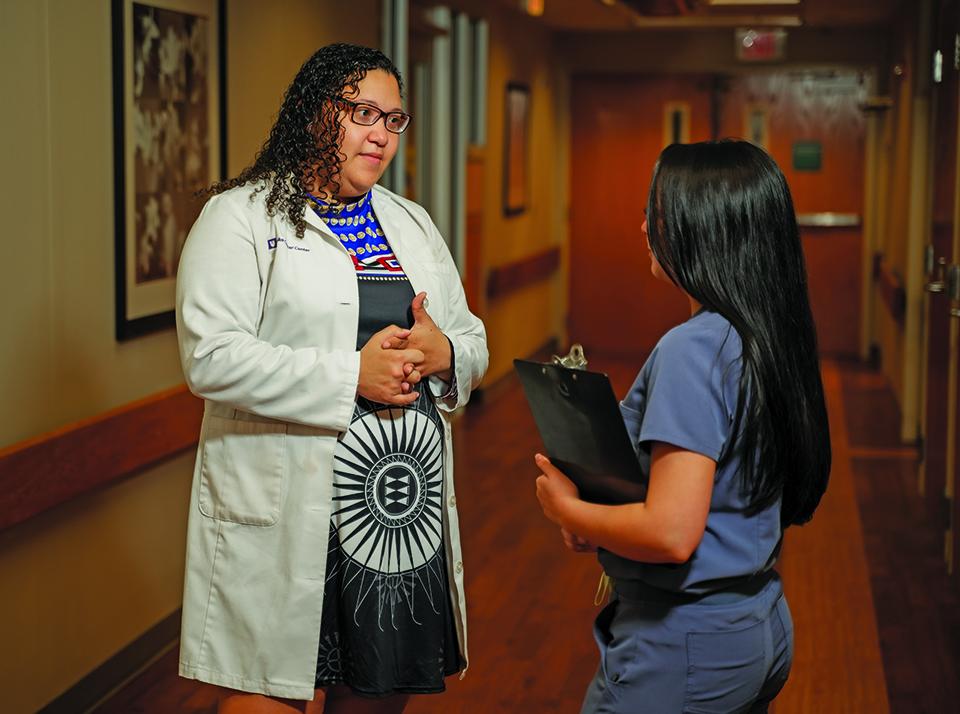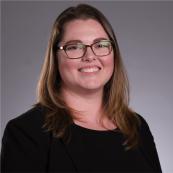Hannah Woriax, MD, assistant professor of Surgery, joined Duke in 2021, settling in her hometown of Pembroke, North Carolina, after completing residency at Virginia Tech’s Carilion School of Medicine and fellowship at the University of Alabama Birmingham. She returned to North Carolina with the goal of establishing a means of care and research for breast cancer patients in rural North Carolina communities.
She practices at both the Gibson Cancer Center in Lumberton and the Scotland Cancer Treatment Center in Laurinburg, both part of the Duke Cancer Network.
“The median income in this area is about $35,000, so quite a few patients do not have access to a full-time vehicle, and most people live at least 15-20 minutes away from wherever they’re being seen,” Woriax said. She works to establish a rapport with both her patients and her staff, communicating the importance of working with and around the patient’s means and abilities.
Woriax’s journey into medicine was kick-started by watching her grandfather, former Navy corpsman and family medicine physician Frank Woriax, MD, who was the first Native American to graduate from the Duke University School of Medicine.
The junior Dr. Woriax learned from her grandfather, whom she affectionately refers to as “papa,” the importance of giving back to their home community of rural and native North Carolinians.
“I came home to practice here because I knew that our patients deserve just as much access to care as the patients that live in more urban areas. And I can be a voice for our patients in a different space,” Woriax said, emphasizing her own credibility to both her patients and the support of the Duke Health system. “I work here, I grew up here, and I live here now. I understand the way of life and challenges on a different level.”
For Woriax, it is also important that care providers understand the historical nature of patient education in rural areas, particularly the lasting distrust for the medical community among the Native American and Black populations. “A lot of people here still see no difference in how we currently practice medicine and how experiments were conducted only decades ago,” she said. “So for me, for breast cancer patients specifically, I need to educate my patients on what their options are and why they would benefit from things like genetic testing, without any negative or malicious intent.”
Being Lumbee herself helps Woriax further establish credibility and trust with her patients, several of whom have known her since she was a child. “I long for those meaningful and long-term relationships with my patients and their loved ones,” Woriax said. “I tell my patients every time I meet them, ‘Don’t worry, you won’t lose me. We’re in each other’s lives now.’”
Woriax said that she hopes the Lumberton and Scotland locations will serve as prototypes for additional programs in the future. “Our goal is to identify where these gaps are and try to build a bridge for patients in a way that’s meaningful for them and long lasting and sustainable for the community.”




